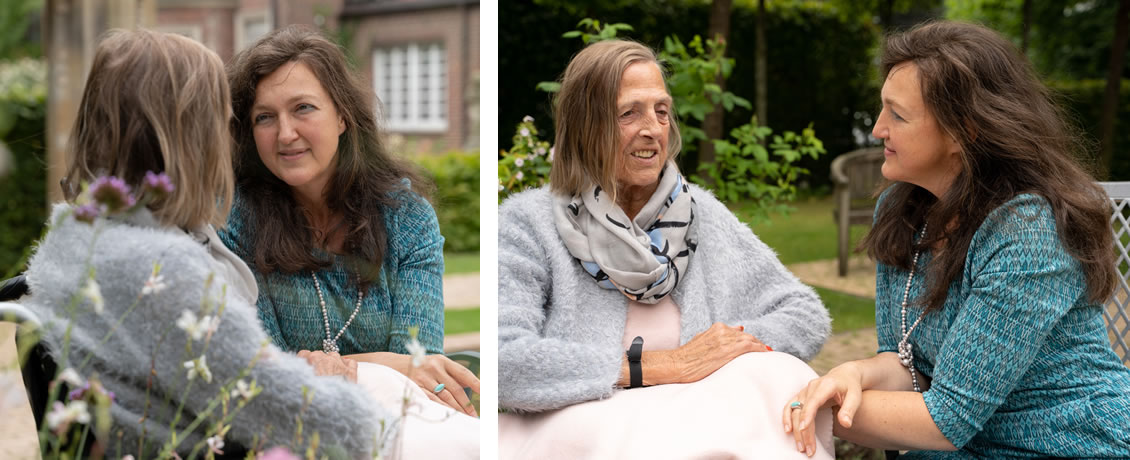
“Every day is precious. Every moment is special.”
Ursula Köppe, nurse at Johannes-Hospiz, had interviewed a resident of our hospice for her final test paper of her special training in palliative care on the wider subject “Giving Humanity a Face”. Afterwards, she gave Leo Bisping, head of the public relation department, the opportunity to ask some important questions. I would like to relate here two of these questions and Ursula Koeppe’s answers.
What is important from your point of view when you deal with seriously ill patients, when you care for them and try to give them human contact and a sense of security?
“Quite simple: common sense and being prepared to listen. Beside all interdisciplinary expertise you need a room where people can find their peace of mind. It takes time to perceive and feel all the many big and little things which are personally important and meaningful for us human beings. Our aim and assignment is a confident relationship marked by human contact and calmness which the resident needs to shape his remaining time for himself and with his closest relatives. (…) We all know, it is true, that there is a lot of dynamics in our lives. But it is in the last time or our life that we get aware again and again of how different a day can be from the one before. Our state of mind may change, new wishes and needs come into being and so do new challenges, which were unforeseeable for the person concerned. As a nurse, that is what I have to adjust and react to, what I must help to create. Much creativity, empathy, and spontaneity are required there.”
Are there any particularly beautiful moments with residents at the hospice which you like to remember, (…) moments that touched you particularly?
“I think of a resident who died in my arms in the presence of her son. She fell asleep so peacefully, she just stopped breathing. There was such a quietude around us. There is this young man who liked to watch tv all nights long, because in doing so he could relax so well. He lay in bed, unmovable. After every change of his position we would push his bed in front of the tv set so he could comfortably watch the screen. When everything was alright he would wink to me, for he could not speak anymore. And then there is this calm composed man with his sheet of paper which he used for communicating, who wrote me that he definitely did not want any sedatives. He had cancer of the lower jaw and a tracheotomy for breathing through. He was well informed about all possible medication we could offer to alleviate his troubles, but he declined everything.
It is touching for me that I do not have to know people in order to share intense feelings with them. It just happens out of the moment. This moment comes and it goes. And it is just as unforeseeable as life itself. There are so many of these moments that I can honestly say: ‘I find my work fulfilling.’”
You can find a full version of the conversation and the interview in our magazine Kairos which is published in German four times a year: here.

